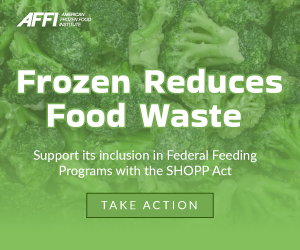 By: Mark FeDuke, MSc
By: Mark FeDuke, MSc
Ardo VLM Director Risk Management & Regulatory Affairs
Foreign businesses have grown accustomed to arranging door deliveries to their American clients including local customs clearance. While U.S. customs regulations allow foreign businesses to operate as non-resident importers, recently enacted U.S. Food and Drug Administration (FDA) regulations do not. As such, U.S. buyers of imported foods need to understand their potential exposure as FDA moves towards enforcement actions under the U.S. Food Safety Modernization Act (FSMA).
As one of FSMA’s seven major rules, the Foreign Supplier Verification Program (FSVP) rule sets out specific food safety oversight requirements as well as detailing who the FSVP importer is and how that party is identified. Under 21 CFR Subpart L §1.514, (subpart L) it is a prohibited act to import food without having a compliant FSVP in place. Importers failing to comply with subpart L can be placed on Import Alert 99-41 thereby detaining their goods at U.S. ports of entry.
Import Alert 99-41 does not state that the FSVP importer is the “importer of record” or the party named on a customs entry. Instead, IA 99-41 reminds industry that the FSVP importer is a U.S. business that owns the goods at time of U.S. entry. Furthermore, FDA makes use of a very specific ownership definition. Ownership is established when, at time of U.S. entry, a U.S. business either already owns the food, has already purchased the food or has agreed in writing to purchase the food. This is to say that if a U.S. buyer issues a purchase order to a foreign business before shipment to the U.S., the U.S. buyer has FSVP importer exposure by way of being a U.S. owner at time of entry.
FSVP Importers in name only
Under 21 CFR Subpart L §1.500 the FSVP Importer must be a U.S. person and an owner of the goods at time of U.S. entry. §1.509 details how that party is to be identified with these different requirements often being confused with each other thereby presenting U.S. buyers with new regulatory exposure.
Under §1.509, the FSVP importer is identified on customs entry filings by their company name, e-mail address and a unique facility identifier with FDA currently only accepting Dun & Bradstreet (or DUNs) numbers for this purpose.
How are foreign businesses as non-resident importers addressing these requirements?
In some instances, foreign corporations have stopped selling on duty paid U.S. door delivered terms. In other instances, U.S. buyers have accepted the obligations and liabilities of being the FSVP importer while their foreign sellers continue to operate as non-resident importers for customs clearance.
As an additional option, some foreign businesses have hired U.S. FSVP importer “agents” although this option is only possible when there is no U.S. owner at time of entry. As previously explained, if a U.S. buyer merely issues a purchase order to a foreign seller before goods are in the United States the act of doing so exposes the U.S. buyer to being understood as a U.S. owner at time of entry which is the FSVP importer definition.
Other foreign businesses have set up legitimate U.S. subsidiaries that carry out financial transactions as U.S. owners of foodstuffs being offered for importation into the United States. Having said this, there are foreign businesses who have taken a different approach using U.S. shell companies in name only thereby placing their own U.S. customers at added regulatory exposure.
FSMA requires that a U.S. business be identified as the FSVP importer. In response, some foreign businesses have established U.S. shell companies for the purpose of obtaining a U.S. address and DUNs number so they can use that information to file customs entries. In these cases, a U.S. entity is being identified as the FSVP importer in apparent compliance with §1.509 but the shell company never owns the goods. Instead, financial transactions continue to be executed between the shell company’s foreign parent and its U.S. buyer. This is to say that U.S. buyers are issuing purchase orders to foreign businesses before customs entry with foreign businesses directly invoicing U.S. buyers. Given FDA’s FSVP importer definition of a U.S. businesses promising to purchase goods before they arrive in the U.S., U.S. buyers issuing purchase orders to non-U.S. companies have exposure as FSVP importers.
Be it an innocent misunderstanding or as a means of skirting U.S. corporate income taxes, foreign businesses using shell companies as FSVP importers in name only present important business risks to U.S. buyers of imported foods.
As a U.S. buyer of imported food, how do I protect my company?
Fortunately, FDA offers a variety of open source platforms for U.S. buyers.
- FDA’s DUNs portal can be used to confirm whether an importer-vendor has a DUNs number as required for customs entry reporting.
- A list of FDA’s FSVP participants can be accessed here enabling U.S. buyers to check if importer-vendors are active FSVP importers as well as checking if their own companies are being misidentified as FSVP Importers.
- FDA’s firm/supplier evaluation resources website allows users to check on importer compliance history including FDA importer inspection results, association with product recalls, import refusals and import alerts.
- Import Alert 99-41 specifically identifies FSVP importers who have been placed on FDA’s Red List.




